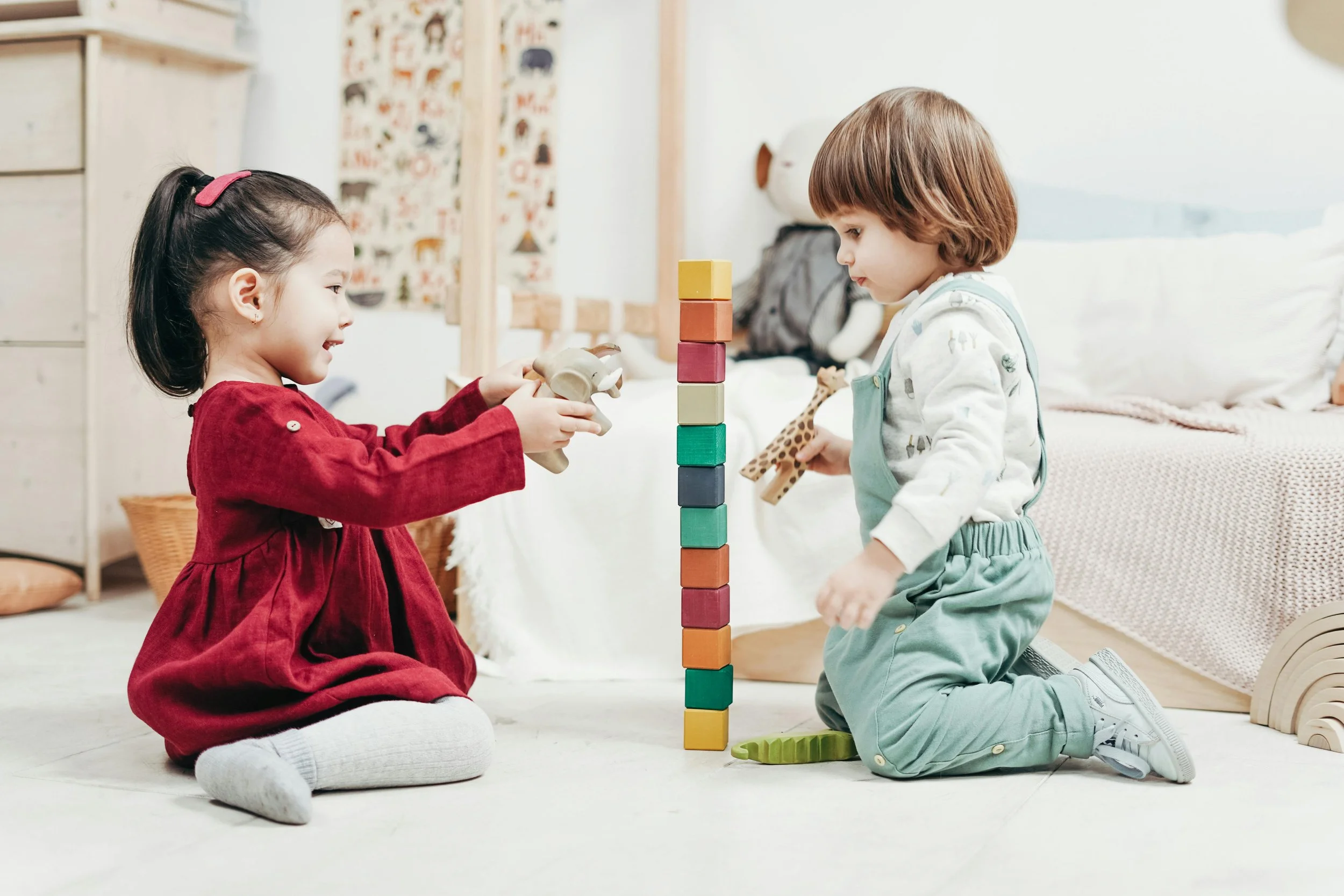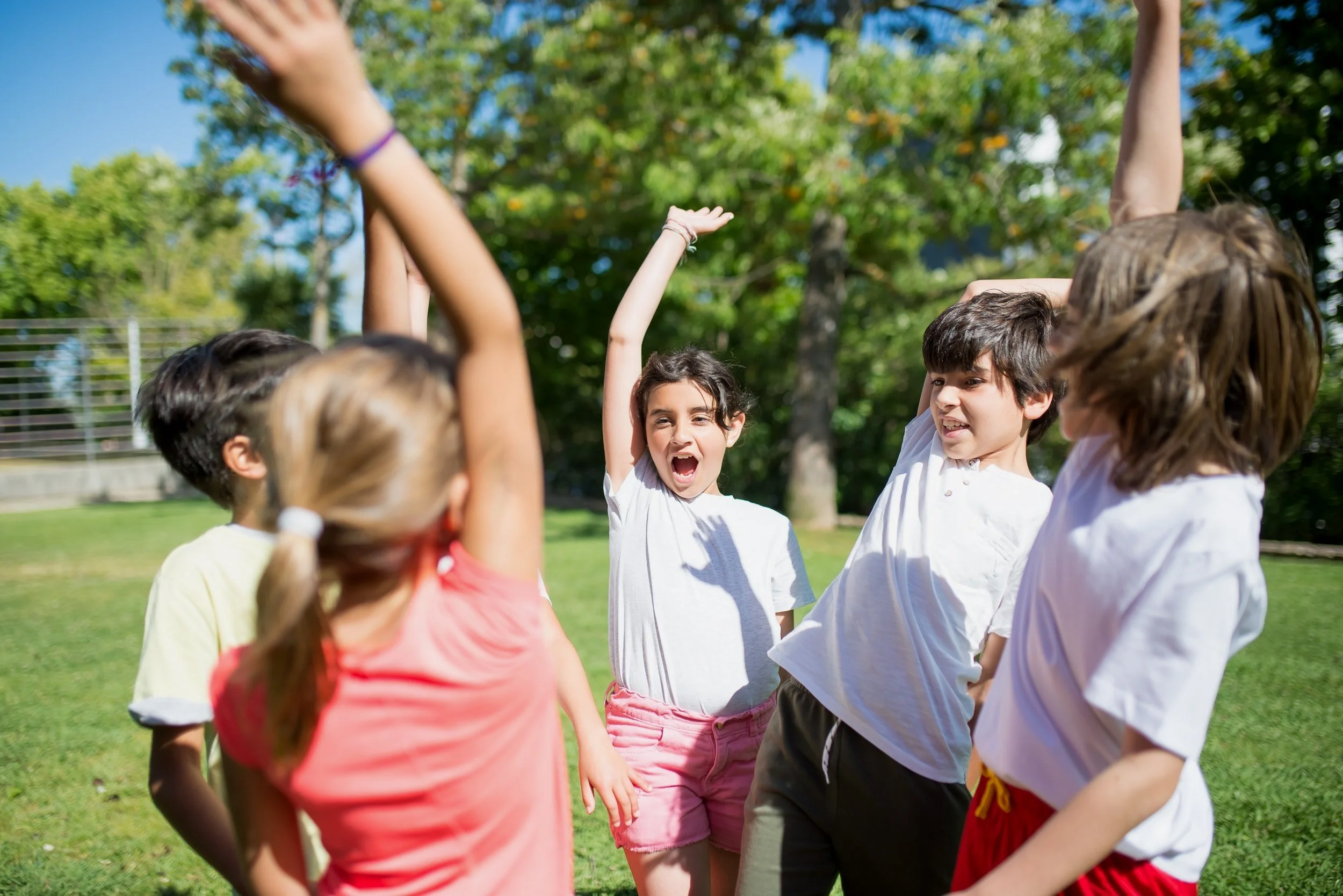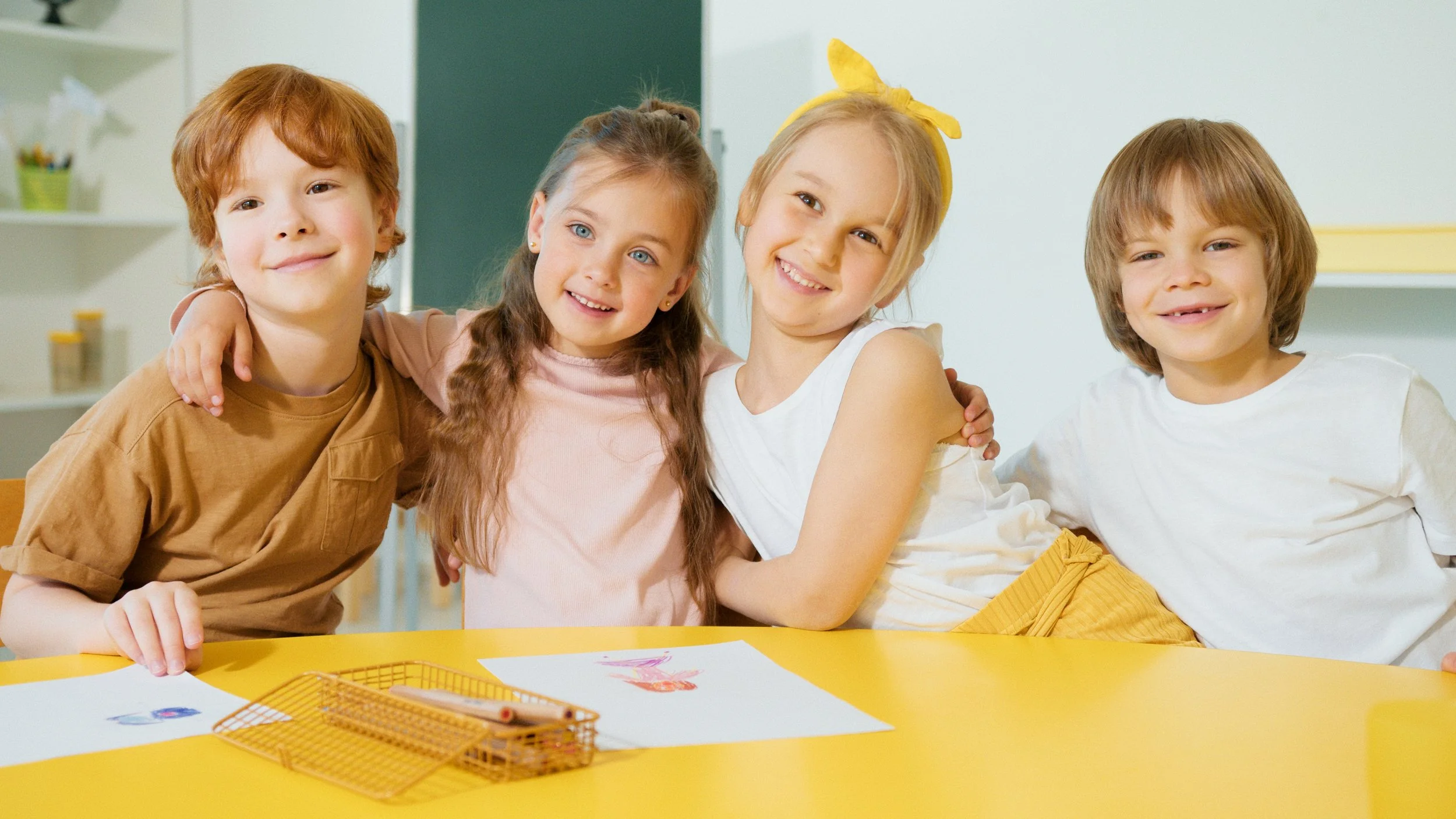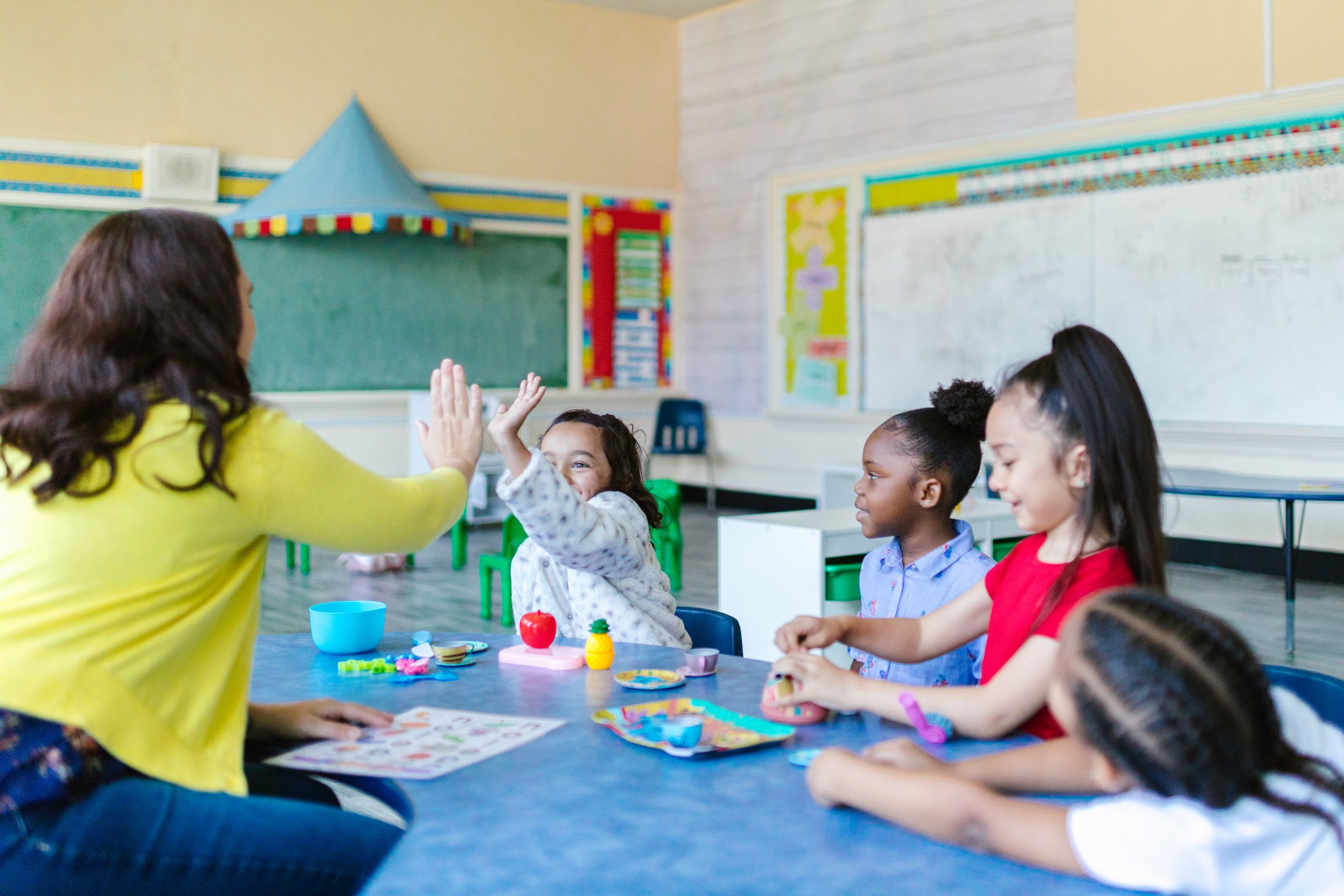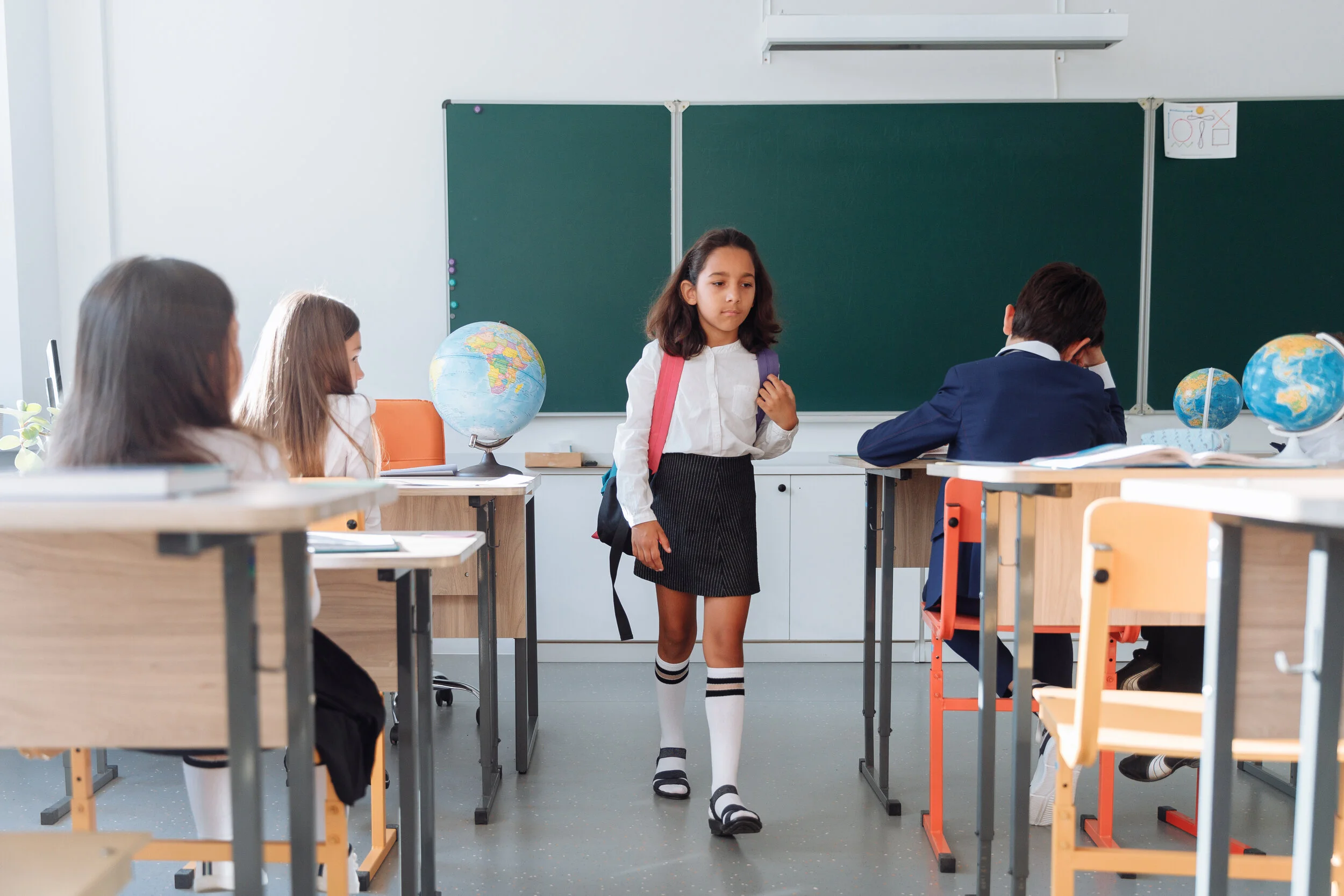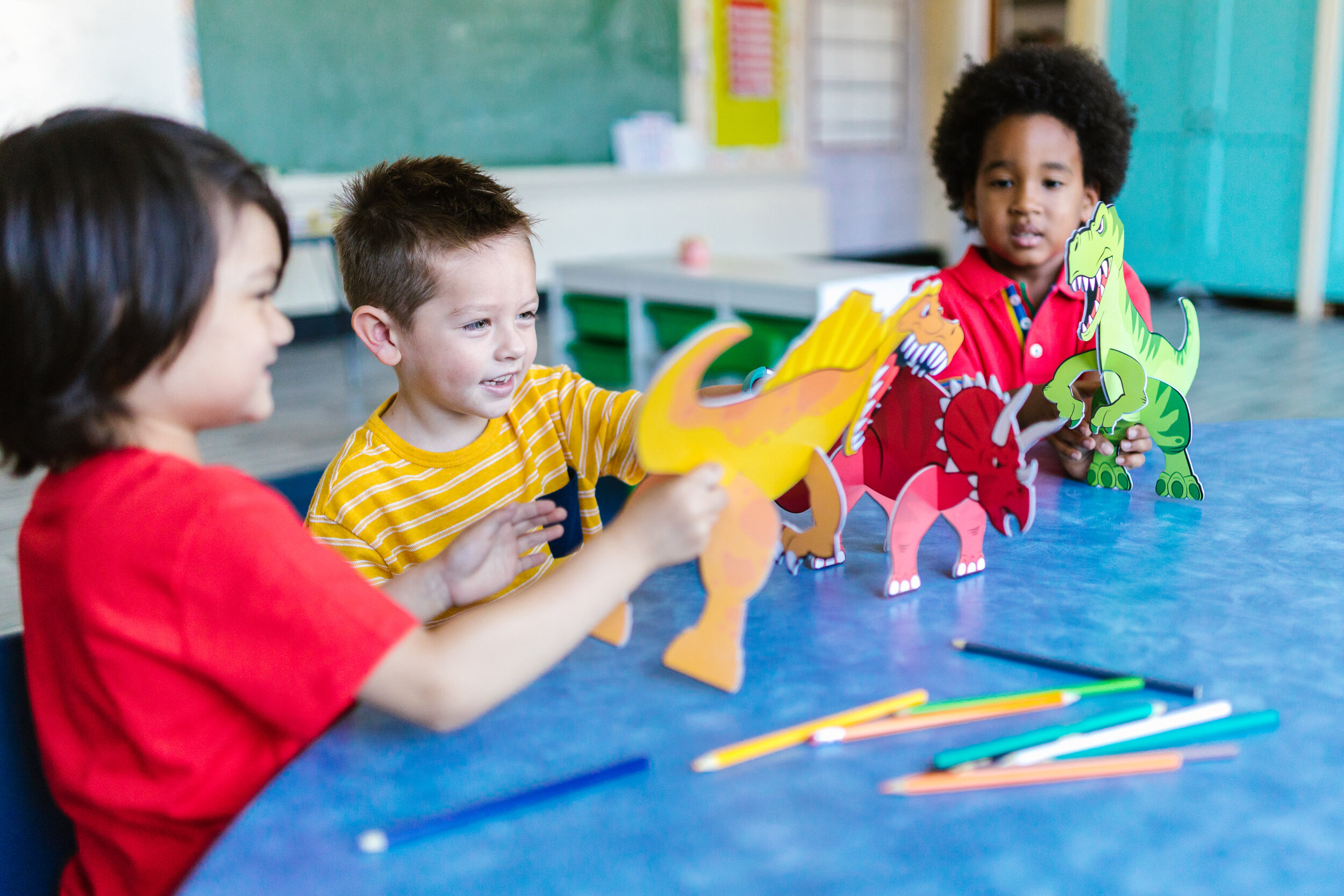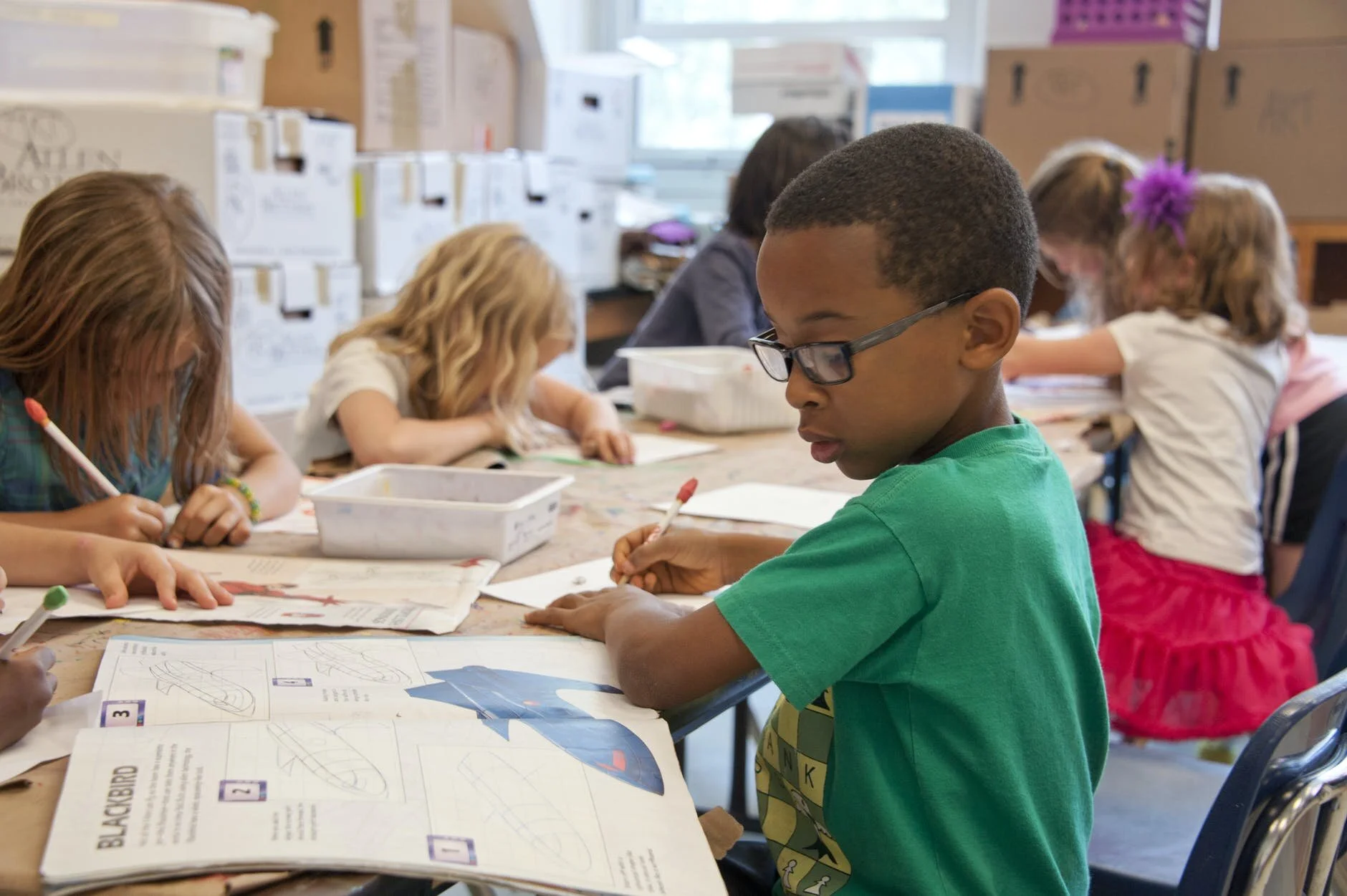Experiencing trauma in childhood is unfortunately common. ACEs, or Adverse Childhood Experiences, create stress and anxiety that can create lasting challenges in adulthood -- from health complications and toxic stress, to fewer economic opportunities and abusive relationships. This post explores ACEs, answering questions like What is trauma? How do children experience ACEs? How can we help children heal from the effects of ACEs?
Viewing entries in
1. Learn about SEL
Are you a parent wondering how your child has been doing socially and emotionally at school but you aren’t sure of the right questions to ask your child’s teacher? Check out our blog for a list of questions you can ask to learn more about your child’s social emotional growth at school. Additionally, if your child’s school has a social emotional learning program, we included questions you can ask to learn more about this too!
Behind each challenging behavior is a skill that hasn’t been developed and an unsolved problem with solutions that haven’t been discovered. Dr. Ross Greene’s approach can help parents and teachers work proactively and collaboratively with their children and students to find solutions to these problems and develop their social emotional skills along the way. Read more about these three steps and how they can help with responding to challenging behaviors.
Creativity gives kids the opportunity to practice social emotional skills and in turn their social emotional skills allow them to be more creative, individually and with each other. Read on to learn more about the connection between creativity and social emotional learning and how activities such as storytelling can help kids develop their creativity.
In celebration of Mental Health Awareness Month, we are sharing information on mental health in children and students. Read to find out how education can help children build a strong foundation for mental wellness for life! Plus, Better Kids has created a month calendar, full of activities that focus on your and your child’s mental health.
Learning to manage emotions is a journey. It can be a more challenging journey for our child with autism. In support of autism awareness, read on to learn ways to support children with autism spectrum disorder to recognize and manage big emotions.
What does it mean to be self-aware? While self-awareness can be characterized as having a sense of one’s personality and character it is also important for understanding one's emotions. Without self-awareness, we will have a harder time understanding and improving our self-management, social awareness, relationships skills, and responsible decision making. Read more about how we can help our children recognize and practice self-awareness.
Responsible decision making is an important skill and the decisions we make impact ourselves and others. This skill is strengthened by our problem solving and critical thinking skills. Read on to learn more about responsible decision making and for tips on how to help kids practice responsible decision making.
As kids develop their self-awareness and social awareness, they are also building relationship skills. These skills such as communication and teamwork give kids the confidence to recognize positive relationships that help them to grow. Read more for tips on how to help kids develop their relationship skills.
As educators, staying updated on the best ways to support our students' learning experiences can be difficult, especially given all of our other responsibilities. The field of learning science helps us do just that. This blog aims to present several best practices from learning science research that you can use in your classroom when teaching SEL.
Social awareness, or socialization, as one of the five competencies of social emotional learning is an important skill for helping kids develop empathy and understand the perspective of others. Read on to learn more about this skill and tools for developing socialization.
As parents and educators we cannot take away the fears and anxieties of our children, as much as we’d like to but we can help our children understand their emotions and provide them with the tools to feel better. Check out our blog for tips on teaching children about anxiety and fear, and superpowers for managing these big emotions.
How do we understand self-management? Self-management is the ability to manage our actions and behaviors as well as achieve goals and aspirations. Practicing self-management will have important long-term benefits such as establishing positive relationships and making responsible decisions. Read more about how we can help children understand and practice self-management.
A child’s ability to learn is dependent on a series of factors. Are basic needs being met? Is there a sense of safety? Are the child’s emotional needs being met? A child who is struggling with behavioral, emotional, and social challenges may also be struggling with academic challenges. Multi-tiered systems of support (MTSS) is a framework used by schools to address and identify students struggling with these challenges. Read more about how MTSS and SEL can provide a model to support each student at school.
Since it was established in 1994, the Collaborative for Academic, Social, and Emotional Learning (CASEL) has been a powerful resource for social emotional learning: driving research, collaboration, policy and advocacy. Read more to see how Wisdom: The World of Emotions curriculum aligns with CASEL’s five core competencies for social emotional learning.
What is the buzz around “SEL” or social emotional learning? What is SEL? And why is it vital for school and home? Your kids’ schools may or may not be implementing specific SEL lessons. Read on to help your child develop positive relationships and make good decisions by adding 3 SEL habits into your family activities.
Social Emotional Learning (SEL) activities add value for all children, including children with ADHD. Social emotional learning activities aren’t an ADHD treatment, but help provide families with positive ways to support their children’s overall learning and growth. Read on to learn about 5 SEL strategies to support children with ADHD.
With many states and countries taking measures to help flatten the curve of COVID-19, you and your children may be experiencing many changes that can lead to increased anxiety. What are some signs to look out for and how can you help your kids address anxiety during this time? Read our blog on supporting children through anxiety.
Anger – and the physiological signs that accompany it – are very normal, but not always directly addressed with children in healthy ways. With the knowledge and tips you have learned here, you can support your child’s social and emotional growth and help them better manage their own feelings of anger!





